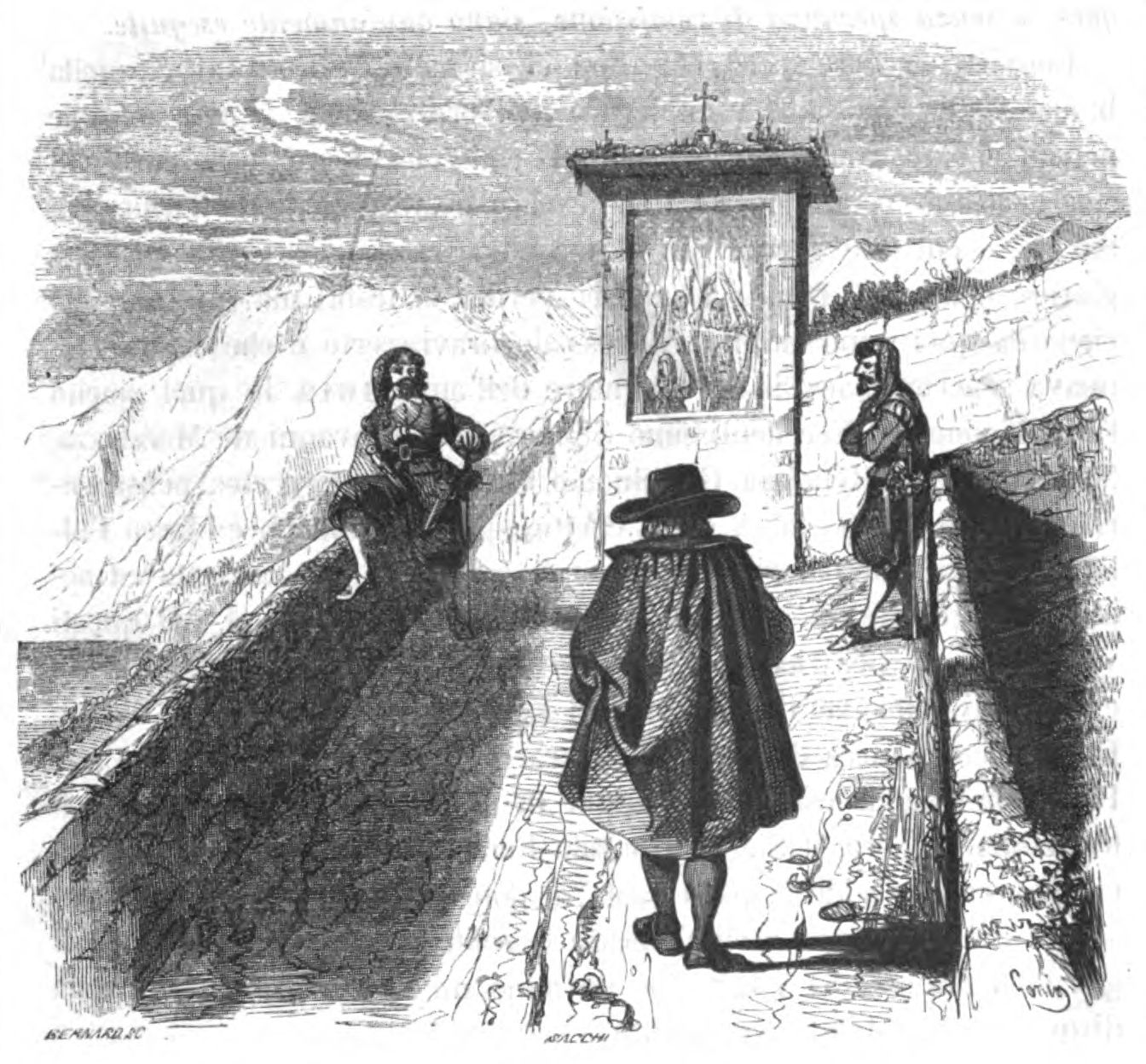bravi on:
[Wikipedia]
[Google]
[Amazon]
 ''Bravi'' (sing. ''bravo''; sometimes translated as 'bravoes') were coarse soldiers or hired assassins employed by the rural lords (or dons) of northern
''Bravi'' (sing. ''bravo''; sometimes translated as 'bravoes') were coarse soldiers or hired assassins employed by the rural lords (or dons) of northern
 ''Bravi'' (sing. ''bravo''; sometimes translated as 'bravoes') were coarse soldiers or hired assassins employed by the rural lords (or dons) of northern
''Bravi'' (sing. ''bravo''; sometimes translated as 'bravoes') were coarse soldiers or hired assassins employed by the rural lords (or dons) of northern Italy
Italy, officially the Italian Republic, is a country in Southern Europe, Southern and Western Europe, Western Europe. It consists of Italian Peninsula, a peninsula that extends into the Mediterranean Sea, with the Alps on its northern land b ...
in the sixteenth and seventeenth centuries to protect their interests. The word derives, probably, from the Latin
Latin ( or ) is a classical language belonging to the Italic languages, Italic branch of the Indo-European languages. Latin was originally spoken by the Latins (Italic tribe), Latins in Latium (now known as Lazio), the lower Tiber area aroun ...
''pravus'' (bad, wicked, evil) via the Spanish
Spanish might refer to:
* Items from or related to Spain:
**Spaniards are a nation and ethnic group indigenous to Spain
**Spanish language, spoken in Spain and many countries in the Americas
**Spanish cuisine
**Spanish history
**Spanish culture
...
''bravo'', in the sense of violent, aggressive, savage, and impulsive.
Their fame—and their reputation as frightening and domineering bullies—rests in part on their striking presence in Alessandro Manzoni
Alessandro Francesco Tommaso Antonio Manzoni (, , ; 7 March 1785 – 22 May 1873) was an Italian poet, novelist and philosopher.
He is famous for the novel ''The Betrothed (Manzoni novel), The Betrothed'' (orig. ) (1827), generally ranked among ...
's historical novel '' The Betrothed'' (1827), which became one of the best-known Italian works of fiction of the nineteenth century and which opens with an extended description of the phenomenon. They were not, however, a fictional invention: his research into local history enabled Manzoni to ascertain from the dates of publication of various proclamations against the ''bravi'' that they had been present in Italy from at least 1583 and until at least 1632.
The ''bravi'' of ''The Betrothed''
The ''bravi'' retained by Don Rodrigo include Grignapoco, Griso, Montanarolo, Sfregiato, Squinternotto, Tanabuso and Tira-dritto. It is not clear whether Biondino and Carlotto are armed or unarmed retainers. Nibbio, who works for l'Innominato, has a multitude of ''bravi'' under his command but, like his master, they are nameless.References
{{Reflist Social history of Italy 16th century in Italy 17th century in Italy